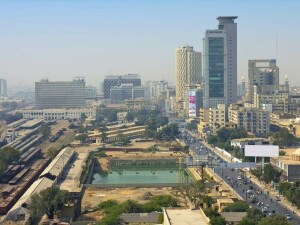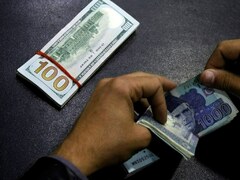The United States and China led global condemnation of North Korea Monday after the reclusive state announced it had carried out a nuclear test, slamming the move as a provocation and demanding a tough UN response.
The 15-member Security Council was expected to hold an emergency meeting on the North Korean test later Monday. A UN spokeswoman said the Security Council had no immediate comment on the news. China, Pyongyang's closest ally in the region, expressed its "resolute opposition" to the "brazen" test.
"China strongly demands the DPRK (North Korea) side to undertake its commitments to the non-nuclearisation of the Korean Peninsula, and stop all actions that can lead to the deterioration of the situation," the foreign ministry said in a statement on state television.
China also urged North Korea to return to six-party talks aimed at reining in Pyongyang's nuclear program. In Washington, White House spokesman Tony Snow stopped short of confirming that Pyongyang had tested a nuclear device but said a seismic event had been recorded at a suspected nuclear test site.
"A North Korean nuclear test would constitute a provocative act in defiance of the will of the international community and of our call to refrain from actions that would aggravate tensions in Northeast Asia," Snow said.
"We expect the Security Council to take immediate actions to respond to this unprovoked act." Snow said that aside from an emergency session of the Security Council, the United States would hold talks with other participants in the six-party talks with North Korea - China, Japan, Russia and South Korea.
Japanese Prime Minister Shinzo Abe said that the test was unpardonable but warned against a knee-jerk reaction. "North Korea's nuclear weapons test can never be pardonable. But we should collect and analyse more intelligence on the matter in a cool-headed manner," Abe said in Seoul, where he was to hold talks with President Roh Moo-Hyun.
"Whatever provocation by North Korea should be dealt with a cool head. Maintenance of bilateral relations (between Japan and South Korea) is important," he said. South Korea accused its northern neighbour of "trampling on the international community's expectations for resolving the nuclear issue peacefully", and said it would not tolerate a nuclear-armed North.
"North Korea's behaviour is a grave threat to peace and stability, not only in the Korean peninsula but also in Northeast Asia," presidential spokesman Yoon Tae-Young said following a two-hour meeting of security chiefs and ministers.
RUSSIA URGED A MEASURED INTERNATIONAL RESPONSE: "The Russian ministry of foreign affairs calls on all states involved in the current complex situation to show reserve and restraint." In Europe, British Prime Minister Tony Blair on Monday condemned the test as a "completely irresponsible act", while Britain's Foreign Office vowed the international community would "respond robustly".
"This further act of defiance shows North Korea's disregard for the concerns of its neighbours and the wider international community," Blair said. France said the test was "a very grave act".
"It is now up to the international community to react to this new situation and to come up with a firm response to Pyongyang: we will engage in consultations with other members of the United Nations Security Council and the countries in the region without delay," French Foreign Minister Philippe Douste-Blazy told AFP.
German Foreign Minister Frank-Walter Steinmeier said that North Korea had increased its "self-imposed isolation", also calling on the Security Council to "react firmly".
The test had pushed the country "further down the wrong path, to self-imposed isolation," Steinmeier said. The European Union called the reported test "unacceptable", saying it "profoundly jeopardises regional stability and represents a severe threat to international peace and security."
Nuclear-armed India said it was "deeply concerned", while Pakistan - the last country to test a nuclear weapon - said it deplored the test, saying it was a destabilising development for the region. "It is regrettable that DPRK chose to ignore the advice by the international community not to conduct the test," Pakistan's foreign office said. Australia, a close US ally and one of the few countries with diplomatic ties with North Korea, said it would press for UN sanctions.
New Zealand called test provocative but Foreign Minister Winston Peters echoed Abe's call for "cool heads". Sweden said the test was directed against the entire international community, the Netherlands "strongly condemned" the move, while Norway called for the issue to be brought before the Security Council.
BR100
15,103
Increased By
140.9 (0.94%)
BR30
42,619
Increased By
540.8 (1.29%)
KSE100
148,196
Increased By
1704.8 (1.16%)
KSE30
45,271
Increased By
438.2 (0.98%)






















Comments
Comments are closed.